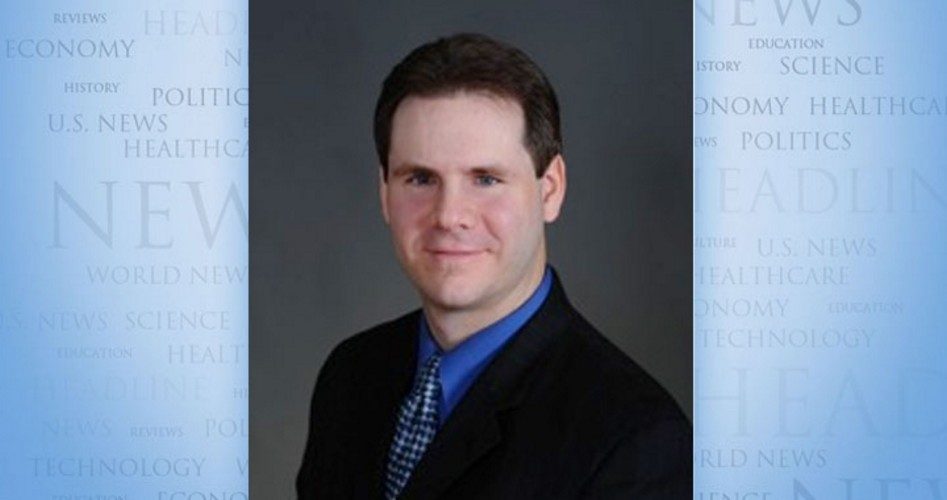
“We hold these truths to be self-evident; all men and women created by…go…you know, you know the thing,” said Joe Biden in 2020. We don’t know if his inability to remember the famous Declaration of Independence line means he isn’t a “Christian nationalist” or if the fact he tried to means he is, but we know whom to ask: journalist Heidi Przybyla.
Przybyla is the Politico hire who recently claimed that believing people “are endowed by their Creator with certain unalienable Rights” makes you a Christian nationalist — and that you’re then not a “Christian.”
This brought understandable mockery, with all and sundry pointing out that the belief is mainstream in America, being integral to our Republic’s founding and embraced by disparate ideologues across our political spectrum. Przybyla then responded, claiming her remarks were taken out of context. There is context, too — but the most charitable conclusion it suggests is that the journalist’s mouth got a step ahead of her brain.
Przybyla made her comments during a Thursday MSNBC panel discussion on All In with Chris Hayes, though the only thing all in was her foot in her mouth. As she said in a clip that went viral:
“The one thing that unites all of them … as Christian nationalists — not Christians by the way, because Christian nationalist is very different — is that they believe that our rights as Americans, as all human beings, don’t come from any earthly authority. They don’t come from Congress, they don’t come from the Supreme Court; they come from God.” (Video below.)
Smarting from the viral mockery, Przybyla protested that she was being misrepresented. “That is NOT what I said & you know it,” she tweeted Friday to a critic. “Why don’t you play the full clip?”
Of course, though, it is what she said, just perhaps not what she meant. What’s more, the full clip (below) still reveals her confusion.
Radio host Erick Erickson pointed out some of Przybyla’s confusion above. But she essentially contradicted herself: First she criticized “Christian nationalists” for embracing the belief in divinely ordained rights — portraying it as a fringe position — and said that the problem was that they, “men” (she stressed with feminist vigor), were interpreting “what God is telling them.” In the next breath, however, she informed that it was actually a common belief, used by Martin Luther King and others when fighting for civil rights and doing good. As she put it in her later tweet, “I said men are making their own policy interpretation of natural law. MLK did so w social justice.”
Now, it’s likely that Przybyla senses she stumbled and would, if she could, go back in time and reformulate her argument. But it’s also likely that her comment was in the nature of a Freudian slip; that is, almost assuredly being an avowed or de facto atheist (like most leftists), she cannot logically believe that rights or anything else come from God.
This is why it’s ironic that Przybyla also stated, in a later Friday tweet, “If you are Hindu, Jewish etc, this might help you understand the next part of my point, which is they [Christian nationalists] are using this for a man-made policy agenda.” Huh?
Why would she have an issue with man-made impositions since the Supreme Court’s or Congress’ brainchildren (which she tacitly endorsed) would, by definition, be “man-made”? Are some man-made beliefs more equal than others?
Interestingly, though, Przybyla also wrote, in the earlier Friday tweet, “You’re welcome to [have your own interpretation of natural law] as well but you don’t speak for all Christians & certainly not for God.”
Alright, now, this is confusing. Poor Heidi has a problem with man-made beliefs. Yet she also has a problem with beliefs claimed to have divine origin (which may or mayn’t actually have such provenance).
So where does this leave us? How are we supposed to make determinations in society? Flip coins?
The reality is that Przybyla herself, without awareness, also tacitly claims to have discerned God’s will, even when she merely speaks of doing “good.” Why? Consider my old flavors analogy:
What is “good”? And who determines what this thing we call “good” is?
Only two possibilities exist: Either man or something outside of him does. If the latter, something vastly superior and inerrant (i.e., God), then we really can say good, or what’s “moral,” exists, apart from man. It’s real. Yet what are the man-as-measure implications?
Well, imagine the vast majority of the world loved chocolate but hated vanilla. Would this make vanilla “wrong” or “evil,” “bad” or “good”? It’s just a matter of preference, of whatever flavor works for you.
Okay, but is it any more logical saying murder is “bad” or “wrong” if we only do so because the vast majority of the world prefers we not kill others in a manner the vast majority considers “unjust”? If it’s all just consensus “opinion,” it then occupies the same category as flavors: preference.
For there to be “good” — for it to be real and more credible than just human “opinion” — it must have a divine source. It must reflect Truth.
The real problem with Przybyla’s comments is that they’re like so many mushy-headed moderns’ statements: They serve as something akin to misdirection and distract us from the real task of having a serious, mature conversation concerning “What is good?”
What does the Truth dictate? What is right or wrong?
This isn’t to imply that Przybyla is purposely obscuring this all-important issue (she’s only purposely propagandizing). She doesn’t understand it. Her kind of misstep is what occurs when you’re desperate to level criticism and, trying to pound a square peg of stigma into a round hole of relative virtue, operate above your philosophical pay grade. Unfortunately, though, her most shallow end of the pool is very, very crowded.

